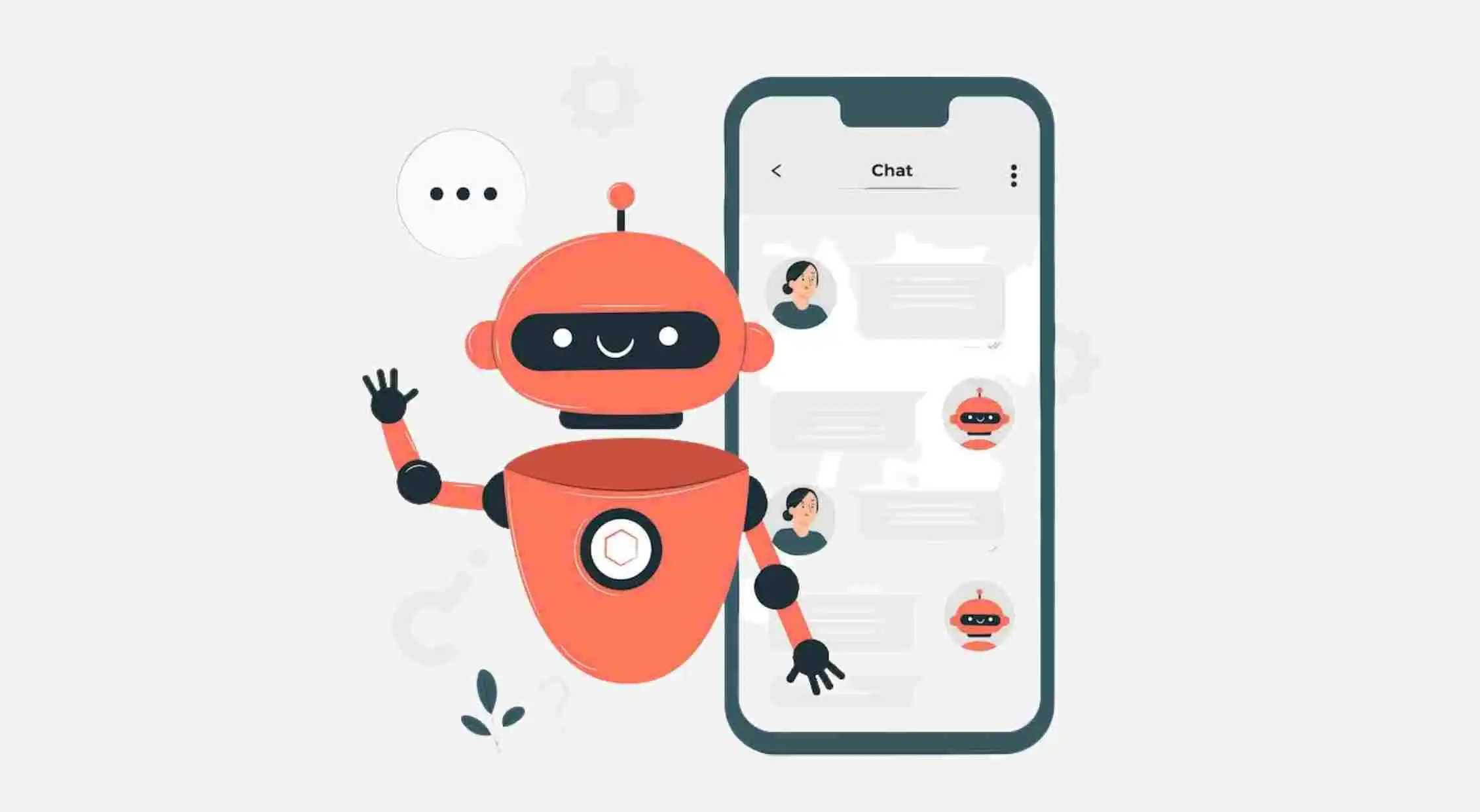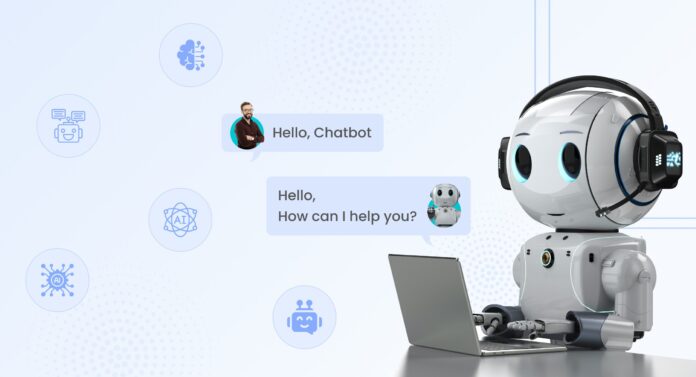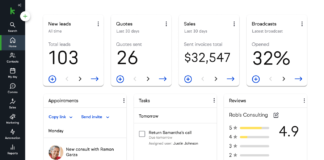Introductions: Best Customer Service in 2024
Chatbots are AI programs that simulate human conversation. They help businesses automate customer service and engagement.
Chatbots have revolutionized customer interactions across various industries. Their ability to provide instant responses makes them invaluable for customer service. Many businesses use chatbots to handle frequent queries, reducing the workload on human agents. Chatbots also enhance user experience by offering 24/7 support.
They can gather valuable data, helping companies understand customer needs better. Integrating chatbots with websites and social media platforms boosts engagement and satisfaction. With advancements in AI, chatbots can now handle more complex tasks. Their efficiency and reliability make them a crucial tool for modern businesses. As technology evolves, chatbots will continue to play a significant role in customer engagement strategies.
Table of Contents

Credit: www.ismartrecruit.com
Introduction To Chatbots
Chatbots are changing the way we interact with technology. They are software applications designed to mimic human conversation. In this section, we will explore the evolution of chatbots and their importance in customer service.
Evolution Of Chatbots
Chatbots have come a long way since their inception. Early chatbots were simple and could only handle basic tasks. Today, they are much more advanced and can understand complex queries. Here is a brief timeline of their evolution:
- 1966: ELIZA, the first chatbot, was created.
- 1995: ALICE, a more advanced chatbot, was developed.
- 2001: SmarterChild became popular on messaging platforms.
- 2010: Apple’s Siri brought voice-activated chatbots to the masses.
- 2016: Chatbots integrated with social media platforms like Facebook Messenger.
Importance In Customer Service
Chatbots play a crucial role in customer service. They provide instant responses to customer queries. This helps in improving customer satisfaction. Let’s look at some key benefits:
- 24/7 Availability: Chatbots are available all the time.
- Cost-Effective: They reduce the need for human agents.
- Consistency: They provide consistent responses.
- Scalability: They can handle multiple queries at once.
Chatbots also help in gathering customer data. This data can be used to improve services. They can also guide customers through complex processes. This makes them an invaluable tool for businesses.
| Feature | Benefit |
|---|---|
| 24/7 Availability | Always ready to assist customers. |
| Cost-Effective | Reduces operational costs. |
| Consistency | Ensures uniform customer experience. |
| Scalability | Handles numerous queries simultaneously. |

Credit: acropolium.com
Technological Advances
The world of chatbots has seen incredible technological advances. These advances have revolutionized how chatbots function. Let’s explore some key technologies driving this progress.
Ai And Machine Learning
Artificial Intelligence (AI) and Machine Learning (ML) are the backbone of modern chatbots. AI helps chatbots understand and respond to user queries. ML allows chatbots to learn from past interactions. This learning process improves their responses over time. These technologies create smarter, more efficient chatbots.
Consider a chatbot that helps with online shopping. It learns your preferences and suggests products you might like. This makes the shopping experience more personalized and enjoyable.
Natural Language Processing
Natural Language Processing (NLP) is another crucial technology. NLP helps chatbots understand human language. It enables chatbots to interpret the meaning behind your words. This makes interactions more natural and human-like.
For example, you can ask a chatbot for weather updates. Instead of just giving numbers, it can provide a friendly weather summary. NLP ensures the chatbot understands the context of your query.
Here is a brief comparison of these technologies:
| Technology | Function |
|---|---|
| AI | Understands and responds to queries |
| ML | Learns from past interactions |
| NLP | Interprets human language |
Combining AI, ML, and NLP creates powerful chatbots. These chatbots can perform tasks with precision and efficiency.
Benefits For Businesses
Chatbots offer numerous advantages for businesses. They help improve customer service, reduce costs, and increase efficiency. Let’s explore some key benefits.
Cost Efficiency
Chatbots can significantly reduce costs. They automate repetitive tasks, saving time and resources. Businesses can handle multiple queries without adding more staff.
Consider the table below for a quick comparison:
| Task | Human Agent | Chatbot |
|---|---|---|
| Handling 1000 queries | 50 hours | Instant |
| Cost per hour | $15 | $0 |
| Total Cost | $750 | $0 |
Clearly, chatbots offer a cost-effective solution.
24/7 Availability
Chatbots provide round-the-clock support. Customers get answers anytime, even during holidays. This improves user satisfaction and loyalty.
Some benefits of 24/7 availability include:
- Increased customer engagement
- Higher sales potential
- Better customer retention
With chatbots, businesses never miss a customer query. This ensures a constant connection with their audience.

Credit: www.qliqsoft.com
Enhancing Customer Experience
Chatbots are revolutionizing customer service. They offer fast, personalized, and efficient support. They enhance customer experience by providing instant responses and tailored interactions. Let’s explore how chatbots achieve this.
Personalized Interactions
Chatbots use AI technology to understand customer needs. They remember previous interactions and offer customized solutions. This makes customers feel valued and understood.
- Chatbots can greet customers by their name.
- They recommend products based on past purchases.
- They provide information relevant to the customer’s location.
Personalized interactions build trust and loyalty. Customers feel like they are talking to a human, not a machine.
Quick Response Times
One of the biggest advantages of chatbots is their quick response times. Customers no longer wait on hold for answers. Chatbots provide immediate assistance, which improves satisfaction.
| Traditional Support | Chatbot Support |
|---|---|
| Wait time: 5-10 mins | Wait time: Instant |
| Limited working hours | 24/7 availability |
Quick responses mean issues get resolved faster. This leads to happier customers and more efficient service.
Industry Applications
Chatbots are revolutionizing various industries by enhancing customer interaction and operational efficiency. They offer tailored solutions that cater to specific industry needs. Let’s explore how chatbots are transforming two major sectors: E-commerce and Healthcare.
E-commerce
In the e-commerce industry, chatbots are changing the shopping experience. They provide 24/7 customer support, answering queries instantly. This reduces the need for human agents. Chatbots can also assist in product recommendations based on user preferences, increasing sales.
Here are some key applications in e-commerce:
- Order Tracking: Customers can track their orders in real-time.
- Personalized Shopping: Chatbots suggest products based on user behavior.
- Customer Support: Instant responses to common queries.
| Feature | Benefit |
|---|---|
| 24/7 Availability | Always available for customer queries. |
| Personalization | Improves user experience and sales. |
| Efficiency | Reduces need for human agents. |
Healthcare
In the healthcare industry, chatbots play a crucial role. They assist in patient engagement and provide medical information instantly. This improves patient care and reduces the workload on healthcare professionals.
Key applications in healthcare include:
- Appointment Scheduling: Patients can book appointments easily.
- Symptom Checking: Chatbots can provide initial diagnoses based on symptoms.
- Medication Reminders: Ensures patients take their medication on time.
| Feature | Benefit |
|---|---|
| Patient Engagement | Improves overall patient satisfaction. |
| Medical Information | Provides accurate and quick information. |
| Efficiency | Reduces healthcare professionals’ workload. |
Challenges And Solutions
Chatbots offer many benefits, but they also face challenges. Let’s explore the key challenges and their solutions.
Data Privacy Concerns
Data privacy is a big concern with chatbots. People worry about their data. Companies must ensure data protection.
Encryption is essential. It keeps data secure. Chatbots should use strong encryption methods.
Another solution is data anonymization. This means removing personal information. It keeps user identities safe.
Maintaining Human Touch
Chatbots can feel robotic. Users miss the human touch. It’s important to keep interactions natural.
One way is to use natural language processing (NLP). NLP helps chatbots understand human language better.
Another method is personalization. Chatbots can use user data to personalize responses. This makes the interaction feel more human.
- Use NLP for better understanding.
- Personalize responses based on user data.
- Include friendly phrases and emojis.
Chatbot, Revolutionizing Customer Service in 2024
Future Trends
The world of chatbots is rapidly evolving. Future trends promise to make chatbots even more advanced. These trends will enhance user experiences and streamline tasks. Let’s explore some of these exciting trends.
Voice-activated Assistants
Voice-activated assistants are becoming more popular. People love using their voices to interact with devices. This trend will continue to grow. The technology behind voice assistants will improve.
Many companies are investing in natural language processing (NLP). This makes voice assistants understand human speech better. Soon, chatbots will respond like real people. They will provide quick and accurate answers.
Voice-activated assistants can perform many tasks. They can set reminders, play music, and control smart home devices. They make life easier and more convenient. The future of chatbots includes smarter voice interactions.
Integration With Iot
The Internet of Things (IoT) connects devices in a smart network. Chatbots will integrate with IoT to manage these devices. This trend will revolutionize homes and offices.
Imagine a chatbot controlling your lights, thermostat, and security system. It will make everyday tasks simpler. You can use a single chatbot to manage multiple devices.
Businesses will benefit too. Chatbots will monitor equipment and send alerts. They will ensure everything runs smoothly. The integration of chatbots with IoT will create smart and efficient environments.
| Trend | Impact |
|---|---|
| Voice-Activated Assistants | Enhanced user interaction and convenience |
| Integration with IoT | Smart home and office management |
Artificial Intelligence Chatbot: Revolutionizing Customer Service
Case Studies
Case studies offer real-world insights into how chatbots perform in various industries. They highlight what works and what doesn’t. This helps businesses to make better decisions.
Successful Implementations
Companies across different sectors have successfully implemented chatbots. These success stories illustrate the practical benefits of using chatbots.
| Company | Industry | Results |
|---|---|---|
| ABC Retail | Retail | 30% increase in customer satisfaction |
| XYZ Bank | Banking | 20% reduction in customer service costs |
| HealthFirst | Healthcare | Faster patient query responses |
Lessons Learned
From these case studies, businesses can learn valuable lessons. These lessons can guide future chatbot implementations.
- User Experience: Ensure the chatbot provides a smooth user experience.
- Training: Train the chatbot with extensive data for better responses.
- Integration: Integrate the chatbot with existing systems seamlessly.
These lessons highlight areas for improvement and help avoid common pitfalls. User experience remains the top priority for successful chatbot deployment.
Training the chatbot is crucial. More data results in more accurate responses. Integration with other systems ensures the chatbot works effectively.
Frequently Asked Questions
What Is A Chatbot?
A chatbot is a software application designed to simulate human conversation. It can interact with users through text or voice.
How Does A Chatbot Work?
A chatbot works using pre-programmed responses and artificial intelligence. It processes user inputs and generates appropriate replies.
Why Are Chatbots Important?
Chatbots are important for automating customer service. They provide instant responses, improving user experience and saving costs.
Can Chatbots Understand Emotions?
Some advanced chatbots can detect emotions using sentiment analysis. They tailor responses to match the user’s emotional state.
Conclusion
Chatbots have revolutionized customer interactions. They offer efficiency, 24/7 support, and personalized experiences. Businesses benefit from increased engagement and satisfaction. Embrace chatbot technology to stay competitive and enhance user experiences. By integrating chatbots, companies can streamline operations and foster stronger customer relationships.
The future of customer service lies in intelligent and responsive chatbots.













